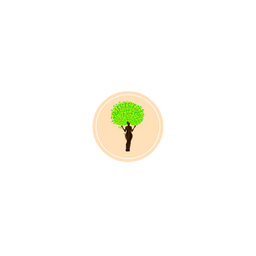Africa is a continent rich in cultural diversity, traditional practices, and ancient wisdom. One aspect of African culture that has stood the test of time is traditional healing methods. These methods are deeply rooted in African holistic health principles, which focus on the well-being of the entire individual - mind, body, and spirit. In this article, we will explore some traditional healing methods in African holistic health and the wisdom they impart.
1. Herbal Medicine
Herbal medicine is an integral part of African traditional healing. For centuries, African healers have harnessed the power of plants to treat various ailments and promote overall health. The vast biodiversity of the African continent provides an abundant array of medicinal plants with diverse healing properties. These plants are often prepared into infusions, teas, or concoctions, and their usage is based on the healer's knowledge and experience.
2. Ancestral Worship and Rituals
In African holistic health, the ancestors play a vital role in healing and maintaining balance. Ancestral worship and rituals are practices that connect individuals to their ancestral lineage and seek guidance and healing from their ancestors. These rituals may involve offerings, prayers, and ceremonies aimed at establishing a connection between the living and the spirit world.
3. Energy Healing
African traditional healing recognizes the existence of energy and its influence on health. Energy healing techniques, such as Reiki and spiritual cleansing, are employed to restore balance and remove blockages in the energy field. These practices involve the channeling of energy and the use of herbs, prayers, and sacred objects to support the body's natural ability to heal.
4. Divination
Divination is a traditional practice widely used in African holistic health to gain insight into the root causes of illness or imbalance. Divination methods vary across different African cultures but often involve the use of tools such as throwing bones, reading patterns, or communicating with spirits. By interpreting the messages received, healers can recommend appropriate remedies or actions needed for healing.
5. Massage and Bodywork
Massage and bodywork have been utilized in African traditions for therapeutic purposes for centuries. These practices involve manipulating soft tissues, muscles, and joints through various techniques to promote relaxation, release tension, and enhance circulation. Massage and bodywork are seen as holistic approaches that address both physical and energetic aspects of the body.
6. Healing Music and Dance
Music and dance have always played a significant role in African culture. In the context of traditional healing, specific rhythms and melodies are believed to carry healing power. These healing sounds and movements are used to evoke emotions, release stagnant energy, and facilitate healing on multiple levels - physical, emotional, and spiritual.
7. Ritual Baths
Ritual baths, also known as cleansing baths, are an important part of traditional healing practices in many African cultures. These baths often consist of herbal infusions or mixtures believed to purify the body, cleanse negative energy, and restore harmony. Ritual baths are seen as a sacred act of self-care and rejuvenation.
8. Sacred Symbols and Talismans
Sacred symbols and talismans are used in African traditional healing as protective tools. These symbols may be drawn or inscribed on objects, worn as jewelry, or placed in the environment to ward off negative energy and promote healing. The use of sacred symbols and talismans is deeply rooted in the belief that physical objects can carry spiritual power.
9. Storytelling and Oral Tradition
Storytelling and oral tradition have long been integral to African culture, serving as a means of passing down wisdom, knowledge, and healing practices from one generation to another. Through storytelling, African healers share ancient teachings, myths, and experiences, empowering individuals to connect with their own healing journey and cultural heritage.
10. Community Support and Ubuntu
African holistic health recognizes the importance of community support and interconnectedness. The concept of Ubuntu, meaning "I am because we are," emphasizes the belief that our well-being is interconnected with the well-being of others. In African communities, individuals come together to support each other physically, emotionally, and spiritually, understanding that collective healing is essential for individual healing.
11. Dream Interpretation
Dreams hold significant meaning and insight in African holistic health. African healers often interpret dreams as messages from the subconscious and the spirit realm. Dream interpretation helps individuals gain a deeper understanding of themselves, their challenges, and potential solutions for healing.
12. Nutrition and Traditional Diets
Nutrition plays a vital role in African holistic health. Traditional African diets are rich in diverse and nutrient-dense foods, reflecting the continent's agricultural abundance. These diets often emphasize whole grains, legumes, fruits, vegetables, and a variety of locally sourced foods. Traditional African cuisine promotes overall health and supports the body's natural healing processes.
In Conclusion
African holistic health is deeply rooted in ancient wisdom and traditional healing practices that have been passed down through generations. By embracing these traditional healing methods, individuals can tap into the wisdom of their ancestors and cultivate holistic well-being. Whether it's through herbal medicine, energy healing, divination, or community support, African holistic health offers a rich tapestry of practices to nourish the mind, body, and spirit. Discover the profound healing potential of African traditions and embark on a journey of self-discovery and wellness.


